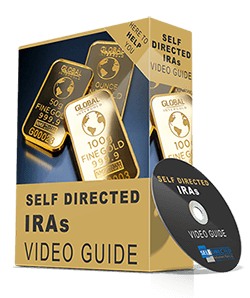Retirement plans are ultimately special investment accounts with a tax shield. These plans have been designed to help you save to meet your retirement goals. Some retirement plans even give you the option to invest in a variety of avenues, which are diverse and offer better returns in the long run along with the security against the collapse of any single investment avenue. There are various retirement plans offered by the IRA as well as private institutions and they all offer good tax saving options. A good retirement plan must be selected on the basis of one’s financial goals, post-retirement income requirement and their current situation. Below we take a look at some of the best retirement plans that are currently available in the market.
401k Plans
401k Plans are very popular and are becoming more so as companies shift the burden for retirement savings to their employees. Every 401k plan requires a sponsor. For a lot of people, the sponsor is their employer. The employer hires a plan administration company and the administrator works with the employer to create a plan they wish to implement. Therefore all 401k plans are not carbon copies as most people think. With these types of plans, the employee has their personal deferrals (contributions) taken from their paychecks pre-tax and the employers match a certain percentage of the employee’s contributions. The match is “free money” and it is widely viewed that an employee should at least contribute enough to take advantage of the match.
Self-Directed 401k Plans are becoming more prevalent. They follow the same 401k rules but have many advantages. For example, a small business owned by a husband and wife can have their own self-directed 401k plan. This allows them to potentially put away over $100,000 per year, which can significantly reduce their tax liability. They are also allowed to make Roth contributions. A self-directed 401k allows high-income earners to enter the Roth arena whereas they might be shut out of a Roth IRA.
More advantages of a self directed 401k
An IRA is a lucrative investment account that allows you to invest beyond stocks and bonds by leveraging the growth potential of mutual funds, precious metals, ETFs, real estate and other types of investments. With self-directed retirement plans, you can also buy and sell investments but it is best to avoid cashing out entirely before the age of 59 ½ if you want to avoid paying the 10 percent penalty fee and taxes applicable on an early distribution. Self-directed retirement plans also make a wonderful hiring and retention tool for small business owners as they allow every participant of the plan to make their own investment choices.
IRA
An Individual Retirement Account (IRA) is available to all individuals, regardless of where they are employed. There are employer-sponsored IRA plans such as SIMPLE IRA and SEP IRA; however, the traditional IRA can be set up by an individual and is unaffected whether the person is self-employed or changes his/her job. Another alternative to the IRA is the Roth IRA, which is deducted from the person’s after-tax income, but the contribution grows tax-free and no tax is levied even on the withdrawal amount.
Self Directed 401k vs. Self-Directed IRA
Much higher contribution limits, no income limitations, spouses can combine former qualified plans, personal loans, UBIT does not apply to leveraged real estate transactions. Most importantly: the investment choices are unlimited as long as the prohibited transaction and disqualified person rules are followed.
Roth IRA
A Roth 401(k) is a relatively new but highly rewarding retirement plan that combines the benefits of a 401(k) with a Roth IRA. Typically offered by employers, a Roth 401(k) requires that the contributions are made from your after-tax paycheck and not your pre-tax salary. Also, if it meets certain regulations, all your earnings and contributions in a Roth are never taxed again.
403b
The 403b plan has been set up specifically for teachers and non-profit employees and takes advantage of variable and fixed annuity insurance policies as the funding vehicles. Again, the employee contribution is deducted from their pre-tax salary and if continued till the end, they are an ideal retirement savings option. Further, the contribution to 403b is higher than those received on 401k or IRA.
Pension Plans
The Pension Plan is an employer retirement plan funded entirely by the employer in most cases. The employer sets aside a certain amount of the employee’s retirement money and then chooses from several income benefit options for receiving the benefit payment post retirement. If the employee wishes, they can withdraw their entire accumulated pension benefits in a lump sum and invest them elsewhere.
401k and 403b qualify as defined contribution plans and are tax-deferred. The investment avenues for the funds are generally diversified mutual funds. There is also a 457 Deferred Compensation Plan, which has been designed to suit the needs of high-income bracket individuals. With this plan, the income can be deferred for retirement in order to pay fewer taxes on those earnings.
The retirement plans’ contributions must be assessed carefully since there are caps on the contributions made and the benefits that may be derived from these.

Rick Pendykoski is the owner of Self Directed Retirement Plans LLC, a retirement planning company based in Goodyear, AZ. He has over three decades of experience working with investments and retirement planning, and over the last ten years has turned his focus to self-directed ira accounts and alternative investments. If you need help and guidance with traditional or alternative investments, call him today (866) 639-0066.




